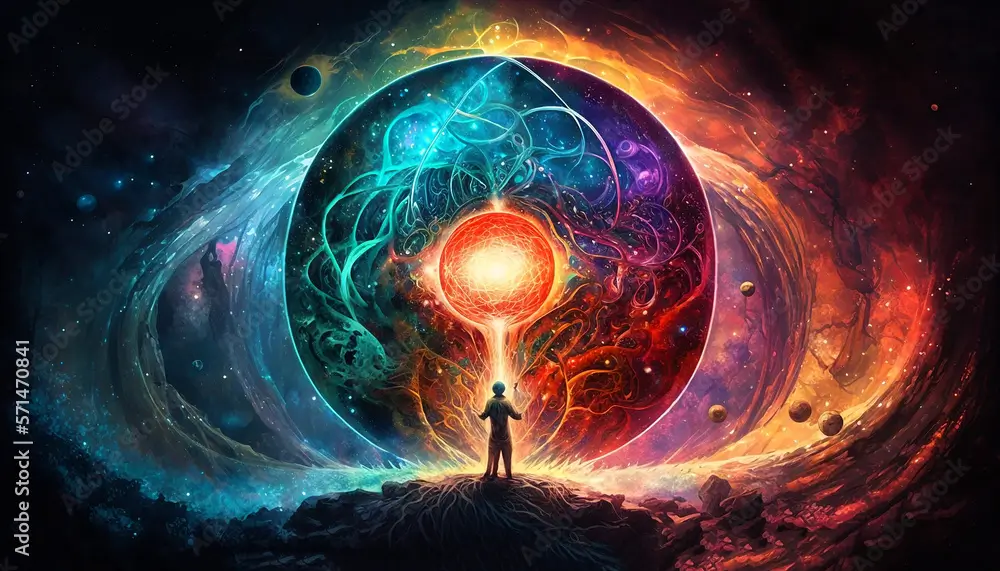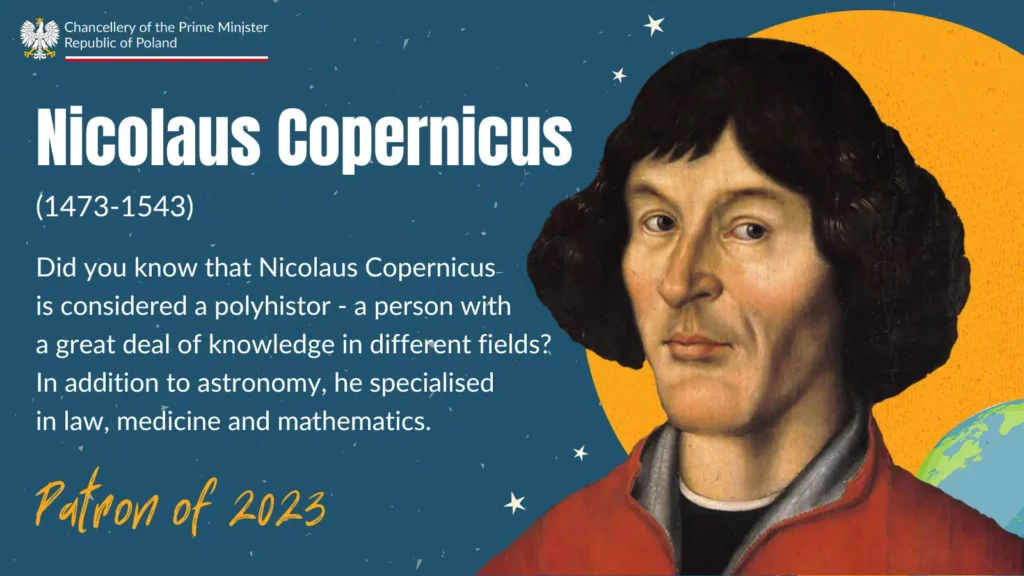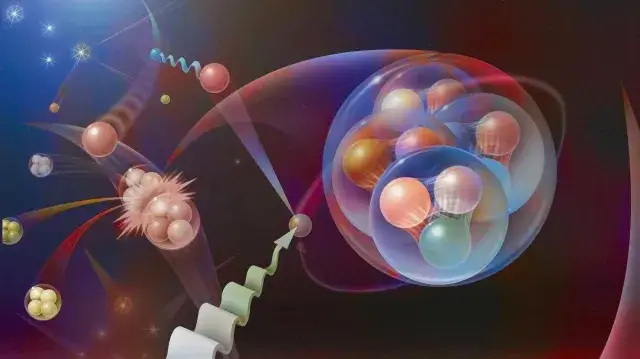
Cosmology and psychology both call into question our modern ideas of being human in mysteriously similar ways. Moreover, the Quran invites us to ponder both the outer and inner experiences of every human being. Allah (SWT) stated, “We will show them our signs in the horizons and in themselves until it becomes clear to them that it [the Quran] is the truth” (41:53).
1. Copernicus and the Heliocentric Revolution
Before Copernicus, the dominant belief was that the Earth was the center of everything. The geocentric model represented both mind and spirit. When Copernicus said he was challenging the geocentric theory and proposing a heliocentric theory (the sun was the center around which the earth revolved), it was scientifically shocking and also psychologically revolutionary. Suddenly, humanity was not the center of cosmogony (the story of the universe).
Even more interestingly, in modern psychology, there is an allegorical articulation of a parallel truth. Often, our egos and desires, when left unchecked, procure our “self” as the center of everything. True maturity begins when one steps back from “self” and things are merely centered around “self.” This echoes Copernicus’s courage in separating Earth from the center.
Did you know? Research in cognitive psychology establishes that egocentrism is a set stage of human development. Overcoming egocentrism is a rite of passage and requires the development of awareness and humility.
Islam also provides us with a guide here; the Qur’an states: “Do not walk upon the earth arrogantly” (Quran 17:37). If Earth is not the center, then neither is my ego.

2. Galileo and the Telescope of Truth
Galileo’s telescope revealed the presence of moons orbiting Jupiter. For the first time, it established that not everything revolves around Planet Earth. By challenging inaccurate beliefs held for centuries, it demonstrated that knowledge often relies on challenging even our strongest traditions.
Psychologically, a telescope also represents our ability for internal reflection. When we look beyond the surface, sometimes we discover inner truths as we deepen our view. Modern research also shows that self-reflection is linked to reduced stress and improved emotional well-being.
Read more: How Ancient Devices Shaped Beliefs
3. Newton’s Laws and the Order of the Universe
Newton discovered not only laws of motion, but also laws of gravity, which connected heaven and earth under one rule. Falling apples and orbiting planets obeyed the same law. His discovery is at the heart of modern physics and even modern-day human imagination.
Psychology also speaks of “laws”. According to behaviorists like B.F. You will find some order in both the cosmos and the mind that appears chaotic enough to propel us towards order.
Did you know? In addition to physics, Newton wrote extensively about God. He believed the natural laws to be indicators that there was order in the universe.
Finally, Islam confirms this cosmic coherence. The Quran states: “And the sun runs its course for a term appointed” (Quran 36:38). There is a law for everything, including our interior world and all that appears chaotic around us.

4. Galileo and the Telescope of Truth
There were moons orbiting Jupiter, as Galileo’s telescope showed. For the first time, it established that not everything orbited around Planet Earth. What it demonstrated was that knowledge requires us to challenge established flaws in thinking that may be supported by centuries of rules.
A telescope is, perhaps unconsciously, a psychological definition of our ability to look inwardly. Sometimes, when looking beyond, we discover truths about ourselves as we expand our view of what lies below. Recent research shows that self-reflection supports lower levels of stress and improvements in emotional wellness.
5. Freud and the Unconscious Mind
Freud found that unconscious desire produces a lot of human behavior. People became shocked by Freudian theory, just like they were when humans were thrown into the cosmos by the scientific revolution, when human consciousness was dismissed as the only arbiter of human behavior. The notion that the mind was not fully under the dominion of consciousness produced great shock.
Modern neuroscience lends support to parts of Freud’s theory. Now, brain scans demonstrate that decision-making often occurs below the conscious level, only appearing to us as feelings and factors producing feelings.
Did you know? Humans are said to enact over 90% of their brain processes unconsciously.
This aligns well with Islamic principles. The Quran states, “Indeed, Allah knows what is hidden within the breasts” (Quran 3:154). Whatever we conceal in the heart or carry in the heart, Allah is fully aware of. The process of healing necessitates that we give recognition to what is hidden inside.
6. Hubble and the Expanding Universe
This scientific finding changed our understanding of philosophy and religion. Science, in a way, demonstrated that the universe began. It also resonated well religiously with many of the Quran’s original teachings, “He is the Originator of the heavens and the earth” (Quran 6:101).
In terms of the psychology of expansion, life is also about expanding as a person beyond what you feel is comfortable. Research in positive psychology identified that the brain actually rewires itself when we learn new skills. Expansion is happening at a cosmic level, as well as a mental level.
Fun fact: Did you know the universe is not only expanding, but actually expanding faster than the speed of light? Between galaxies, there is so much distance that expansion does not break the law of relativity.
A real-life Islamic case study is the scholar Al-Biruni. He wrote about the possibility of multiple worlds’ young centuries before Hubble, and this fascinated him. He exhibited what I would call the spiritual side of/human nature of wonderment about the universe.
Read more: Astronomy and Psychology: 5 Insights
7. Quantum Physics: The Mystery of Reality
In a quantum world, discoveries revealed a totally new idea about reality based on randomness and probability. Not only is everything up in the air, but there isn’t even a fixed point for anything since particles can behave in a wave pattern. This rocked human logic and classical physics into a whole new context.
In terms of psychology, we also feel a significant amount of uncertainty throughout our lives. Cognitive science indicates that our brain inherently dislikes ambiguity. However, we can grow and expand as beings when we accept and settle uncertainty.
Fun fact: Luckily, subatomic particles can even exist in two separate areas at once; this is totally normal in the quantum world.

Conclusion
From Copernicus onward, each finding changed the entire science and the human mind. These advances have served as a story of discovering that the universe is a part of the mind. Modern psychology, as well as Islamic wisdom, recognizes that the orders of the stars are also the orders of the heart. The Quran brings the two worlds together beautifully, “He created the heavens and the earth in truth” (Quran 16:3).
When studying the stars, we also study ourselves. The true genius is not simply discovering the cosmic mind but also discovering yourself within.



Leave a Reply